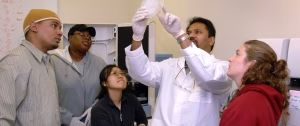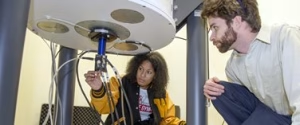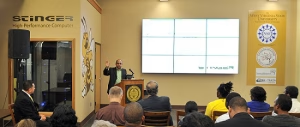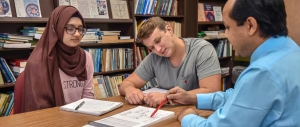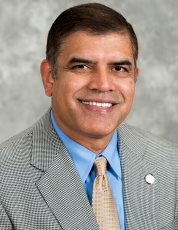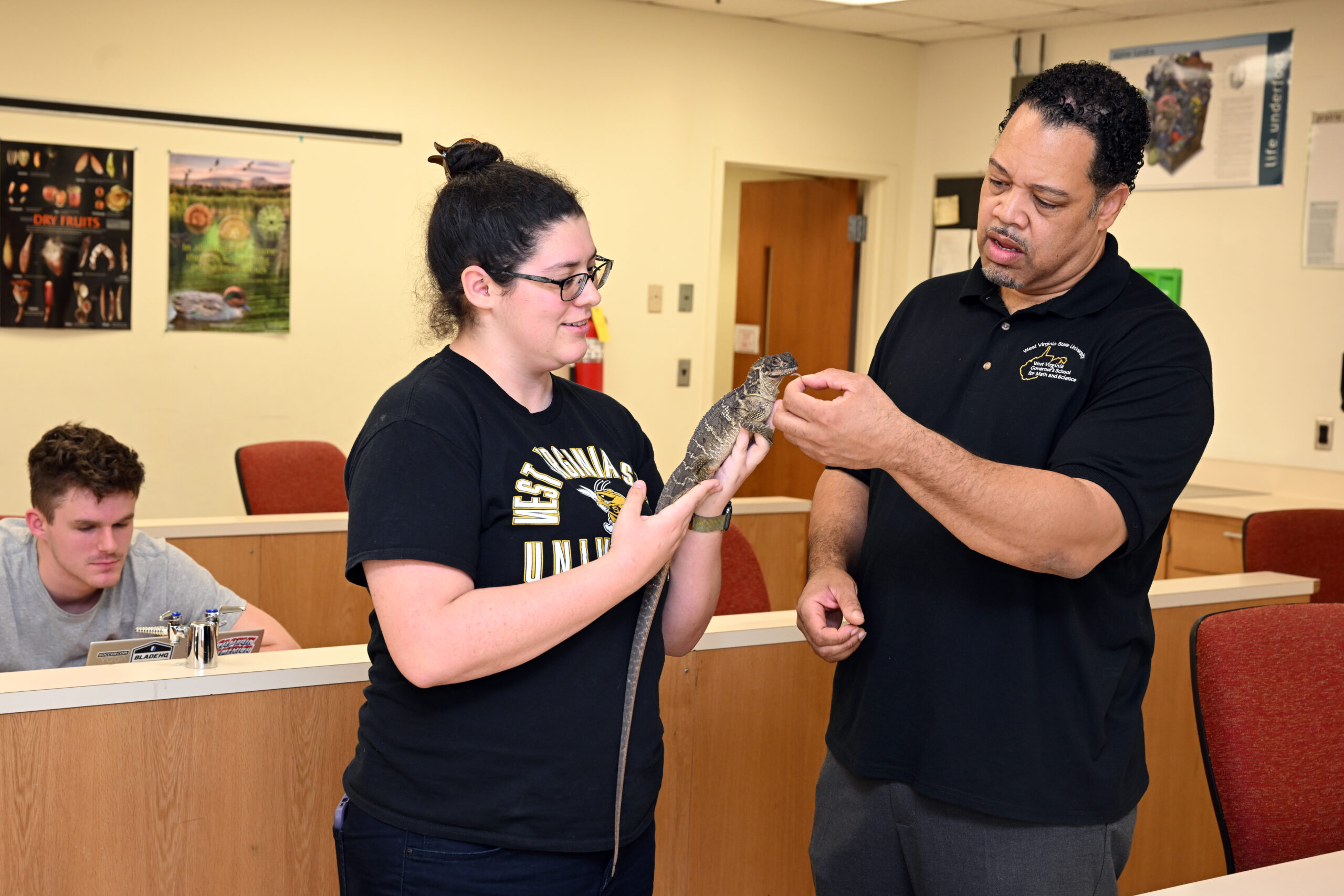
College of
Natural Sciences
& Mathematics
Our Programs
Bachelor of Science in Biology (BS)
The department of Biology exists to provide students with an opportunity to learn about science in general and about the science of Biology specifically. Courses are designed to serve a diverse community of students planning careers in science, medicine, or allied health sciences; planning careers as science teachers; and those with an avocation interest in living organisms.
Bachelor of Science in Chemistry (BS)
Depending on the option chosen, students are prepared for graduate studies in chemistry, or immediate employment in industry, or entry into professional schools such as those of medicine, dentistry, and pharmacy.
Bachelor of Science in Computer Science (BS)
The Mathematics and Computer Science department at WVSU offers comprehensive programs designed to prepare students for a rapidly evolving technological landscape. With a focus on theoretical understanding and practical application, students engage in rigorous coursework that covers topics ranging from advanced mathematical concepts to cutting-edge computer science methodologies. Our faculty fosters an intellectually stimulating environment conducive to research, innovation, and problem-solving, equipping graduates with the skills and knowledge needed to excel in diverse careers in technology, academia, and beyond.
Bachelor of Science in Engineering/Civil and Engineering/Chemical
West Virginia State University offers Bachelor of Science in Engineering/Civil and Engineering/Chemical. According to U.S. Bureau of Labor Statistics: “Employment of civil engineers is projected to grow 6 percent from 2023 to 2033, faster than the average for all occupations. About 22,900 openings for civil engineers are projected each year, on average, over the decade. With continued investment in U.S. infrastructure, civil engineers will be needed to manage projects that meet society's need for upgrading bridges, roads, water systems, buildings, and other structures. Civil engineers also will be needed to oversee renewable-energy projects, such as construction of wind farms and solar arrays, as these projects gain approval.” According to WV Economic Outlook 2023-27, chemicals manufacturing continues to represent the single-largest manufacturing subsector. Indeed, roughly 20 percent of manufacturing jobs in the state and a two-fold larger share of output are found within across a range of chemicals manufacturing firms. WVSU’s Bachelor of Science in Engineering/Civil and Engineering/Chemical programs will produce graduates well prepared for the needs of the state and the region.
Bachelor of Science in Mathematics (BS)
The Mathematics and Computer Science department at WVSU offers comprehensive programs designed to prepare students for a rapidly evolving technological landscape. With a focus on theoretical understanding and practical application, students engage in rigorous coursework that covers topics ranging from advanced mathematical concepts to cutting-edge computer science methodologies. Our faculty fosters an intellectually stimulating environment conducive to research, innovation, and problem-solving, equipping graduates with the skills and knowledge needed to excel in diverse careers in technology, academia, and beyond.
Master of Arts in Biotechnology (MA)
At West Virginia State University, you will learn state-of-the-art Biotechnology as you conduct research that addresses environmental, agricultural, and bio-medical problems. Our program provides instruction in the broad field of Biotechnology, as well as specialized training in the many sub-disciplines of Biotechnology.
Master of Science in Biotechnology (MS)
At West Virginia State University, you will learn state-of-the-art Biotechnology as you conduct research that addresses environmental, agricultural, and bio-medical problems. Our program provides instruction in the broad field of Biotechnology, as well as specialized training in the many sub-disciplines of Biotechnology.
Master of Science in Computer Science (MS)
The Master of Science in Computer Science program is designed to give students a thorough understanding of database management systems, Operation System, computer architecture and design, computer graphics and game design, Artificial Intelligent, computer and cybersecurity, design and analysis of algorithms, high performance computing, software architecture and engineering
No results found.
Administration
College of Natural Sciences & Mathematics
West Virginia State University
101 Hamblin Hall,
Institute, WV 25112-1000
